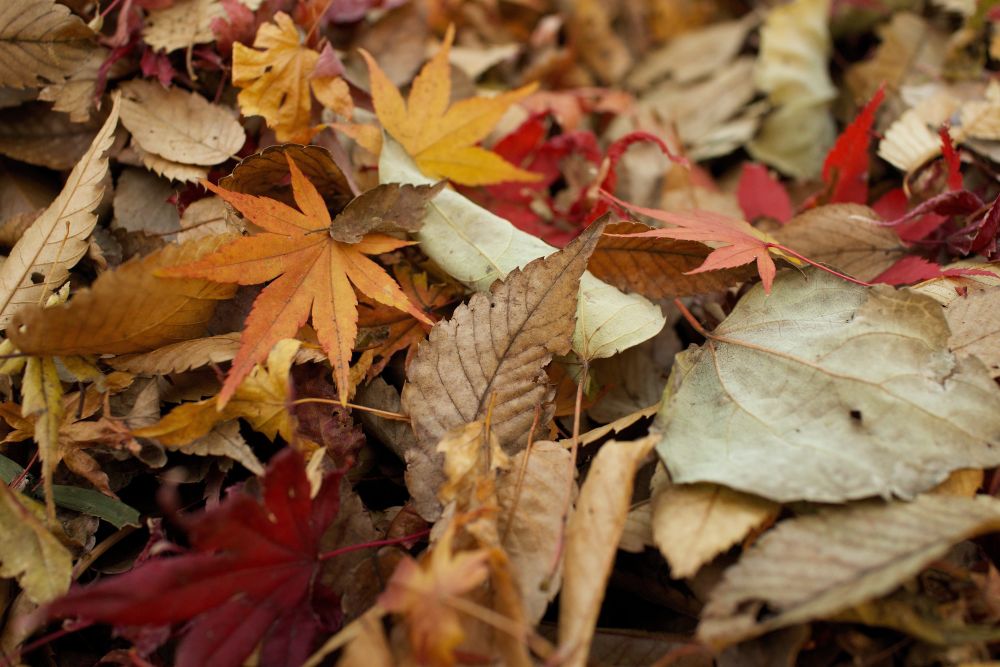I love the smells, the baking, the overall cozy feeling. I’m not a big fan of watching my garden fade into a deep sleep though! Gardens are always rewarding work, but the autumn clean up is kind of…bleh.
So, what kinds of things should we be doing to prep the garden for winter?
Let’s start with fertilizer. We know that fertilizer promotes growth in plants. There are a couple of things you want to fertilize this time of year. Annuals are the flowers that only survive one growing season here in Calgary. This includes things like geraniums, marigolds, petunias, veggies, etc. Continue fertilizing these flowers well into Autumn until they’re done! This not only benefits you in providing colour, but also helps out those beneficial pollinators who are hungry heading into winter! The other thing you’ll want to consider fertilizing is your lawn with an autumn fertilizer. We recommend this great one from Pro-mix. Applying this will allow for the storage of essential nutrients and encourage deep root growth. Things you shouldn’t fertilize are your perennials, trees, and shrubs.
Next, we move to those autumn leaves. THE icon of Autumn. I personally look forward to falling leaves, but there are a lot of opinions about what you should do with the ones around your yard. To rake or not to rake….that is the question. Typically, you want to rake in the spring and autumn. When you rake in the spring, your main goal is to remove the thatch (layer of organic matter that works to provide insulation for your lawn over winter). Using a heavier rake will help to remove that layer. In the autumn, you’re aiming to only remove the leaves. If not removed, those leaves will get wet, heavy, and produce mold which doesn’t fly with grass. A leaf rake is light enough to remove just the leaves and leave the layer of thatch which we is very beneficial protection for grass during the winter months. Some plants will benefit from the presence of leaves. Consider piling them around plants like roses or against a back fence where little yard critters can build homes. Having these beneficial bugs will give you a step up come spring. Careful when removing that leaf layer in the spring though so as not to damage new plant shoots, and to not kill the bugs you’re trying to protect.
Now, some of the more fragile plants may require a little more protection. For some of your new trees and roses, laying down some mulch can help to insulate them during our harsh winters. Be sure to choose a more shredded mulch to block the snow as much as possible. We have some available for purchase here. Frost blankets can also help to insulate your plants especially during those chilly overnights. Set up a few bamboo sticks around your plant and drape the fabric top. You want to avoid any of your branches from touching the blanket or poking through. Same principle with burlap which we sell at the store in bulk or in rolls. This strong fabric can help to provide insulation through the winter for some of your more fragile trees and shrubs, but again try to set up some sticks around it and staple the burlap to the sticks to avoid branches sticking through.
Lastly, focusing on your annuals and perennials. With annuals, fertilize them with a bloom boost fertilizer this this one from Pro-mix to push them into those final blooms before removing them. They’ll be done by the end of the season. With perennials, don’t fertilize! We know that fertilize promotes growth in plants. You want these plants to come back next year! As Colin put it in Thursday’s video, it’s like being really really tired and someone offers you a Red Bull. Not good. Let your perennials go to sleep. Remove the dead leaves, add mulch if needed, and then leave them. Why remove the dead leaves? It’ll not only give you less to do come spring, but it decreases the chances of damaging those baby shoots in the spring. When in doubt if your plants are annual or perennial, best thing to do it to just leave. Don’t risk pulling out or fertilizing a perennial by mistake!
I hope your autumn clean up goes well! If you have any questions, let us know! We’re all standing by to help you out at the store, as well as on all our social channels.
Next week, we’re diving more into the realm of Annual flowers. They can do a lot for your yard in the autumn. YES! Don’t give up on them!
Happy gardening!
Brandi

